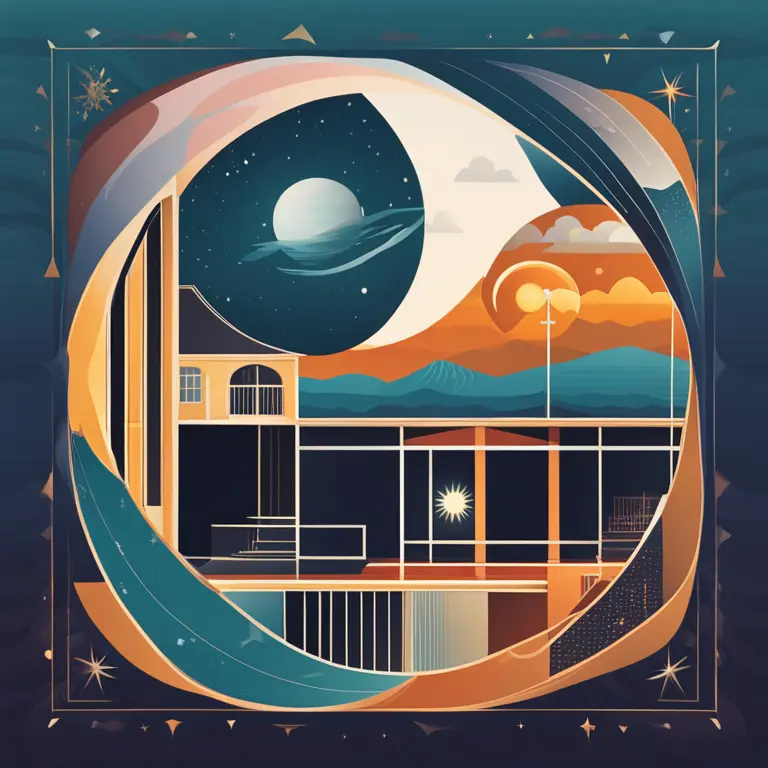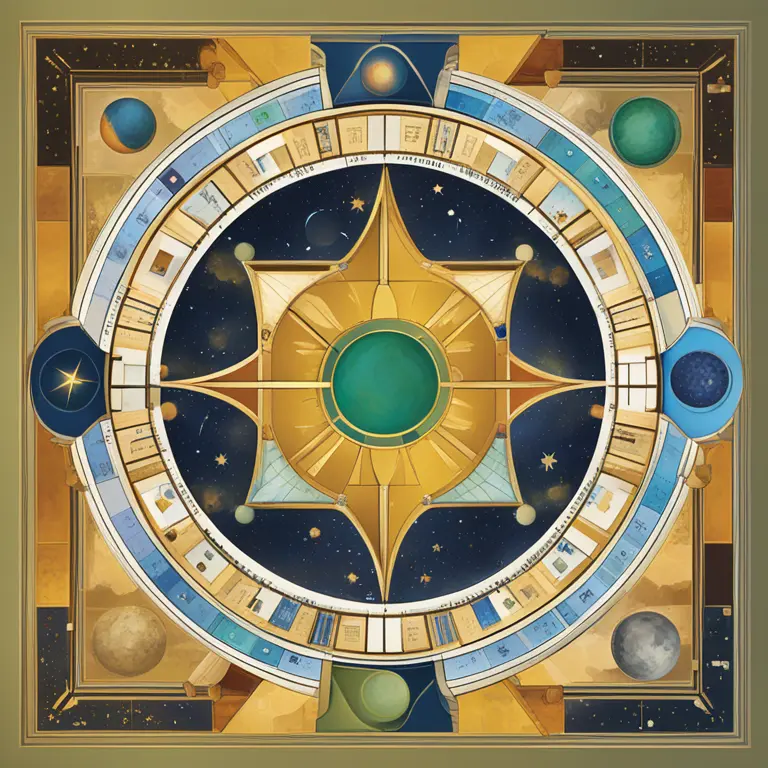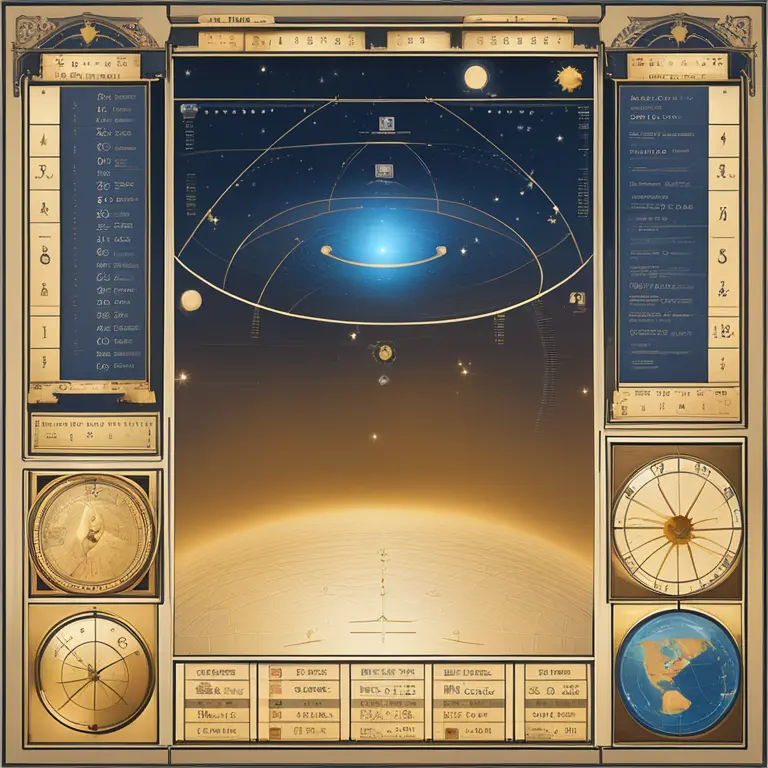
The Anatomy of Astrology House Systems
Dive into the core of astrology with an insightful look into various house systems and their impact on astrological interpretations.
article by Priya Deshmukh
Foundations of House Systems
Astrology stretches back thousands of years, evolving into a complex field with numerous branches and techniques. Central to the practice are house systems, which astrologers employ to interpret an individual's birth chart. Houses in astrology are akin to a twelve-roomed mansion, with each room governing distinct aspects of life such as personality, career, relationships, and more. Unlike the zodiac signs that depend on the seasonal movement of the Sun, house systems are primarily based on the Earth’s rotation around its axis and its orbit around the Sun. As we advance in our understanding of the cosmos, the house systems continue to be refined, making astrology an ever-evolving art.

Differentiating House Systems
There are several house systems used in astrology, each with its own method of dividing the sky. The Placidus system, the most popular in Western astrology, uses time to divide the houses and is known for its accuracy in birth location and time. The Whole Sign system, the oldest, assigns entire signs to houses, ensuring simplicity and ease of interpretation. The Equal House system divides the ecliptic into twelve equal parts from the ascendant, offering straightforwardness similar to the Whole Sign but with nuanced differences. Koch and Regiomontanus are time-based systems like Placidus but use slightly different calculations. In contemporary practice, the choice of house system can vary from one astrologer to another, often based on personal preference or the specific requirements of the reading.

Implications on Astrological Readings
The house system an astrologer selects has profound implications on a birth chart reading. For instance, in the Placidus system, the houses can vary significantly in size, which could potentially place a planet in a completely different house than in an Equal House system. Such shifts can alter the interpretation of an individual's chart, influencing the guidance provided. It is thus crucial for astrologers to clarify the system they use and for clients to understand how these systems can affect the reading outcome. Awareness of the house systems enhances the dialogue between the astrologer and the client, ensuring a richer consultation.

Modern Approaches to House Systems
With advancements in astronomical software, astrologers in 2024 and beyond have unprecedented accuracy in chart calculations. Modern programs allow for swift comparisons between house systems, letting practitioners analyze and choose the appropriate model based on the specifics of the chart they're examining. The age of data has also ushered in a more evidence-based approach to astrology, with the astrological community now being able to collect and analyze large datasets to determine empirical correlations within different house system frameworks. This integration of technology and tradition is enhancing the precision and relevance of astrological interpretations in contemporary society.
The Philosophical Underpinnings
While technicalities are important, the philosophy behind the choice of house system can be equally telling. For some, the symmetry of the Equal House system aligns with a more balanced cosmic view. Others feel that the Whole Sign house system's connection to ancient traditions carries a spiritual heritage. The Placidus system, with its complex calculations and focus on temporal elements, might resonate with those who appreciate astrology’s synchronicity with the person's experience of time and space. The philosophical reasoning behind the selection of house systems offers significant insight into an astrologer's broader understanding of the universe and its workings.
The Future of House Systems
As astrology moves deeper into the digital age, practitioners and enthusiasts alike speculate about the evolution of house systems. There is a growing trend towards personalization in astrological practice, with individuals seeking systems that most resonate with their personal experiences. The dialogue between the astrological community and scientific advancements continues to foster a spirit of exploration. New theories and systems may emerge, while ancient ones may gain fresh interpretations. Regardless of the developments, the study of house systems remains a vital part of the astrological journey, anchoring celestial insights to terrestrial experiences.
Published: 2/13/2024
Modified: 2/13/2024
More predictions
Come back here soon to learn more about yourself and your future


The Moon Tarot Card: Insights and Meanings
Delve into the profound symbolism and astrological implications of the Moon Tarot card for guidance and personal reflection.


The Tarot Card Deck: A Gateway to Mystical Insights
Discover the tarot deck's rich symbolism and its role in personal growth and foresight. An insightful guide to the power of tarot cards.


The Tarot Queen of Cups: A Sign of Compassion and Insight
Delve into the symbolism and significance of the Queen of Cups in Tarot, uncovering her nurturing essence and intuitive power in divination.